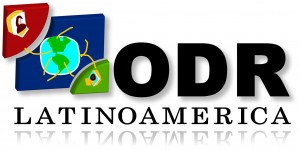
I’ve been researching on the characteristics, possibilities and limitations of the so called “online dispute resolution methods” ODR since 2006.
The original analysis of their viability in the contemporary society began with a group of academics in 1996 in USA. Their investigations focused on the development of Online Dispute Resolution ODR, and were directed by Professor Ethan Katsh, founder of the Center for Information Technology and Dispute Resolution located at the University of Massachusetts Amherst[1].
In September 2009 I was invited to join that prestigious and progressive group of studies at the 9th ODR World Forum hosted at Haifa University[2]. From that moment on, I was designated to organize the 10th ODR World Forum at Buenos Aires, Argentina in 2010; so far, the only academic event on the subject that took place in Latin America at a global scale[3].
I write this introit only to legitimate with previous experience, investigation, achievements and failures, the opinions that I’ll share from here on with you, kind reader. With this said, one of the key issues that I found in this field of work is: what social benefit can obtain the people involved in an electronic mediation?
Let’s begin by its advantages:
- Convenience
- Time, place
- Fast, economic
Disadvantages:
- Requires a certain degree of informatics knowledge
- Equipment, Anti-virus, training
- Communications are not face to face
- Its practice needs to adapt to legislation in each country, nation or state
Regarding ODR application in professional practice and the effective use of its tools, I’ve encountered along these ten years profound concern and mistrust. Also, an enormous resistance to the simple evaluation of their viability, as well as for to the incorporation of these methods in the active practice of mediation. I could resume this attitude in the following statement of Antonio Machado: “All that is ignored, is despised”[4].
Online dispute resolution has come to stay and I want to remark that professional platforms available at the market (I’m not talking about videoconferences by SKYPE or other free of charge amateur programs), are nowadays very low cost and they mean a quick and massive implementation. These services are also the only ones that comply with essential information security and protection of the synchronous[5] virtual reunions for online mediations.
At this point, we need to make a stop at an important problem that constitutes a barrier to ODR mass use. I’m not referring to people that have easy access to the latest technologies of information and communication and that could quickly, overcoming intellectual or emotional resistance, be trained in the use of ODR for their professional practice. My interest centers in those people that for social, economic or technology illiteracy reasons, can’t be receptors of these services.
Sadly, it’s not news that those who have less are also the ones that more often find obstacles in the access to justice. Discrimination, lack of support, stability, resources and advice are among the causes; and it’s for these particular cases, above all, that governments should be providers and guarantors of fairness and equity, opting for efficient and inclusive methods.
For example: state implementation of ODR technology could allow a humble woman to approach a mediation office in her neighborhood. This place would have the necessary equipment to perform online mediations. Let’s avoid the thought that a “super computer” is needed. It’s more than enough with simple and accessible instruments, as long as they have the suitable platforms and professionals to handle them. In this public office, the woman would be accompanied by a co-mediator to begin an interactive meeting with, for example, her ex-husband that lives in another state or country. He would be also in the company of an official co-mediator and the meeting would allow resolving a conflict on visit schedule or child support.
We began this model in the province of Salta, Argentina in year 2012 with the support of the former Minister of Justice Dr. María Inés Diez and the Secretary of Participatory Methods Dr. César Rodríguez Galíndez. The plan was protected by the Ministerial Resolution 118/12. I had the satisfaction to get a signed agreement for my social network www.odrlatinoamerica.com to perform online and face-to-face training. It was about developing technological skills in virtual mediation to over 120 mediators of the register of said province, among them about 70 community workers that were able to bring the model to their locations with such success that it was later on shared with other provinces of Argentina.
After that the Argentinian province of Córdoba and its direction of Participatory Methods (Di.M.A.R.C.), under the management of Dr. Débora Fortuna, joined the trajectory of training in ODR by ODR Latinoamerica. The hours of the courses were homologated by Resolutions n° 083/2015 and 110/2015 for the mediators of their register. In the last quarter of 2015 the Direction of Mediation of the Buenos Aires Province in Argentina, under the management of Dr. Ricardo Bracamonte, added for the first time training in ODR with our online courses. This capacitation was included in the offer of continuous training for the professionals of their register; Dispositions n° 535/2015 and 652/2015.
Broadening the margins of inclusion in the possibility to resolve conflicts on-line for the most humble, whether it is with synchronous or asynchronous methods[6], doesn’t only provide with a tool to access justice, but it also develops the reach of pacific, non-judicial practices for solving disagreements. Placed as a public policy and led by the governments, parties without economic resources or with physical impediments could benefit through the public mediation center of their commune. This service would be available for the cases that permit it or require it, and the parties wouldn’t have to leave their neighborhoods or cities by expensive and unaffordable transportation.
I’ve trained the online mediators of the Escuela del Poder Judicial de Guanajuato, México, under the management of Mr. Tobías García Tovar. That country is working already, among other cases, with cross-border interactive mediation in the State of Tamaulipas. Their mediations are intended for people with difficulties on migratory documentation, for example. They take place in the Center of Alternative Mechanisms for Conflict Resolution, under the management of Dr. Roberto Montoya Gonzáles. The agreements have no legal status and they can’t be executed; but if the parties agree to communicate in an interactive meeting to solve a disagreement, it’s our ethical obligation as professionals, as well as the government’s, to make this path possible. I want to remark that a lot of these agreements are fulfilled.
Our world has over 7.500.000.000 habitants, of which an 85% have access to cellphones. This data confirms that a wide spectrum of the humanity can benefit with the use of ODR, most of all the excluded and the needed. That’s what using new technologies of communication and information for the public good it’s all about.
*ALBERTO ELISAVETSKY Director of ODR Latinoamerica
http://www.odrlatinoamerica.com – Director of the Observatory of Social Conflict in the National University of Tres de Febrero, Argentina – Fellow of the Center of New Technologies applied to the Resolution of Disputes in EE.UU (NCTDR) – Director of Simediar, project of simulated distance mediations http://www.simediar.com – Regional Partner in Latin America for Youstice http://www.youstice.com/es
[1] For further information: http://www.odr.info
[2] For further information http://odr.info/elisavetsky/
[3] See the presentation used at the ODR World Forum 2010: http://es.slideshare.net/tisisem/odr-2010-albertoelisavetsky
[4] Antonio Machado, 1875-1939. Spanish poet and prose writer, one of the leading figures of the literary movement known as the Generation of ’98.
[5] The terms synchronous and asynchronous refer to different possibilities of virtual communications, which can be in real time or not. A videoconference is a synchronous way, for it develops in real time, while and e-mail exchange is asynchronous.
[6] See footnote 5




